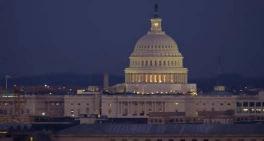Supreme Court adopts new rules for cell phone tracking
Law Journals
The Supreme Court says police generally need a search warrant if they want to track criminal suspects’ movements by collecting information about where they’ve used their cellphones. The justices’ 5-4 decision Friday is a victory for privacy in the digital age. Police collection of cellphone tower information has become an important tool in criminal investigations.
The outcome marks a big change in how police can obtain phone records. Authorities can go to the phone company and obtain information about the numbers dialed from a home telephone without presenting a warrant. Chief Justice John Roberts wrote the majority opinion, joined by the court’s four liberals. Roberts said the court’s decision is limited to cellphone tracking information and does not affect other business records, including those held by banks.
He also wrote that police still can respond to an emergency and obtain records without a warrant. Justices Anthony Kennedy, Samuel Alito, Clarence Thomas and Neil Gorsuch dissented. Kennedy wrote that the court’s “new and uncharted course will inhibit law enforcement” and “keep defendants and judges guessing for years to come.”
The court ruled in the case of Timothy Carpenter, who was sentenced to 116 years in prison for his role in a string of robberies of Radio Shack and T-Mobile stores in Michigan and Ohio. Cell tower records that investigators got without a warrant bolstered the case against Carpenter. Investigators obtained the cell tower records with a court order that requires a lower standard than the “probable cause” needed to obtain a warrant. “Probable cause” requires strong evidence that a person has committed a crime.
The judge at Carpenter’s trial refused to suppress the records, finding no warrant was needed, and a federal appeals court agreed. The Trump administration said the lower court decisions should be upheld. The American Civil Liberties Union, representing Carpenter, said a warrant would provide protection against unjustified government snooping. The administration relied in part on a 1979 Supreme Court decision that treated phone records differently than the conversation in a phone call, for which a warrant generally is required.
In a case involving a single home telephone, the court said then that people had no expectation of privacy in the records of calls made and kept by the phone company. That case came to the court before the digital age, and the law on which prosecutors relied to obtain an order for Carpenter’s records dates from 1986, when few people had cellphones. The Supreme Court in recent years has acknowledged technology’s effects on privacy. In 2014, the court held unanimously that police must generally get a warrant to search the cellphones of people they arrest. Other items people carry with them may be looked at without a warrant, after an arrest.
Related listings
-
Drug court graduates get second chance at life
Law Journals 06/20/2018Kevin Hunter's day job doesn't typically lend itself to feel-good moments, but he got to share in 34 of them Monday afternoon.Hunter, a Fort Wayne police captain, was among the first to congratulate nearly three dozen graduates of the 45th Allen Supe...
-
Gamers in court for first time after Kansas 'swatting' death
Law Journals 06/15/2018Two online gamers whose alleged dispute over a $1.50 Call of Duty WWII video game bet ultimately led police to fatally shoot a Kansas man not involved in the argument will make their first appearances in court Wednesday in a case of "swatting" that h...
-
Court upholds Phoenix law over same-sex wedding invitations
Law Journals 06/10/2018An Arizona appeals court on Thursday upheld a Phoenix anti-discrimination law that makes it illegal for businesses to refuse service to same-sex couples because of religion.The ruling comes days after the U.S. Supreme Court sided with a Colorado bake...

Grounds for Divorce in Ohio - Sylkatis Law, LLC
A divorce in Ohio is filed when there is typically “fault” by one of the parties and party not at “fault” seeks to end the marriage. A court in Ohio may grant a divorce for the following reasons:
• Willful absence of the adverse party for one year
• Adultery
• Extreme cruelty
• Fraudulent contract
• Any gross neglect of duty
• Habitual drunkenness
• Imprisonment in a correctional institution at the time of filing the complaint
• Procurement of a divorce outside this state by the other party
Additionally, there are two “no-fault” basis for which a court may grant a divorce:
• When the parties have, without interruption for one year, lived separate and apart without cohabitation
• Incompatibility, unless denied by either party
However, whether or not the the court grants the divorce for “fault” or not, in Ohio the party not at “fault” will not get a bigger slice of the marital property.




